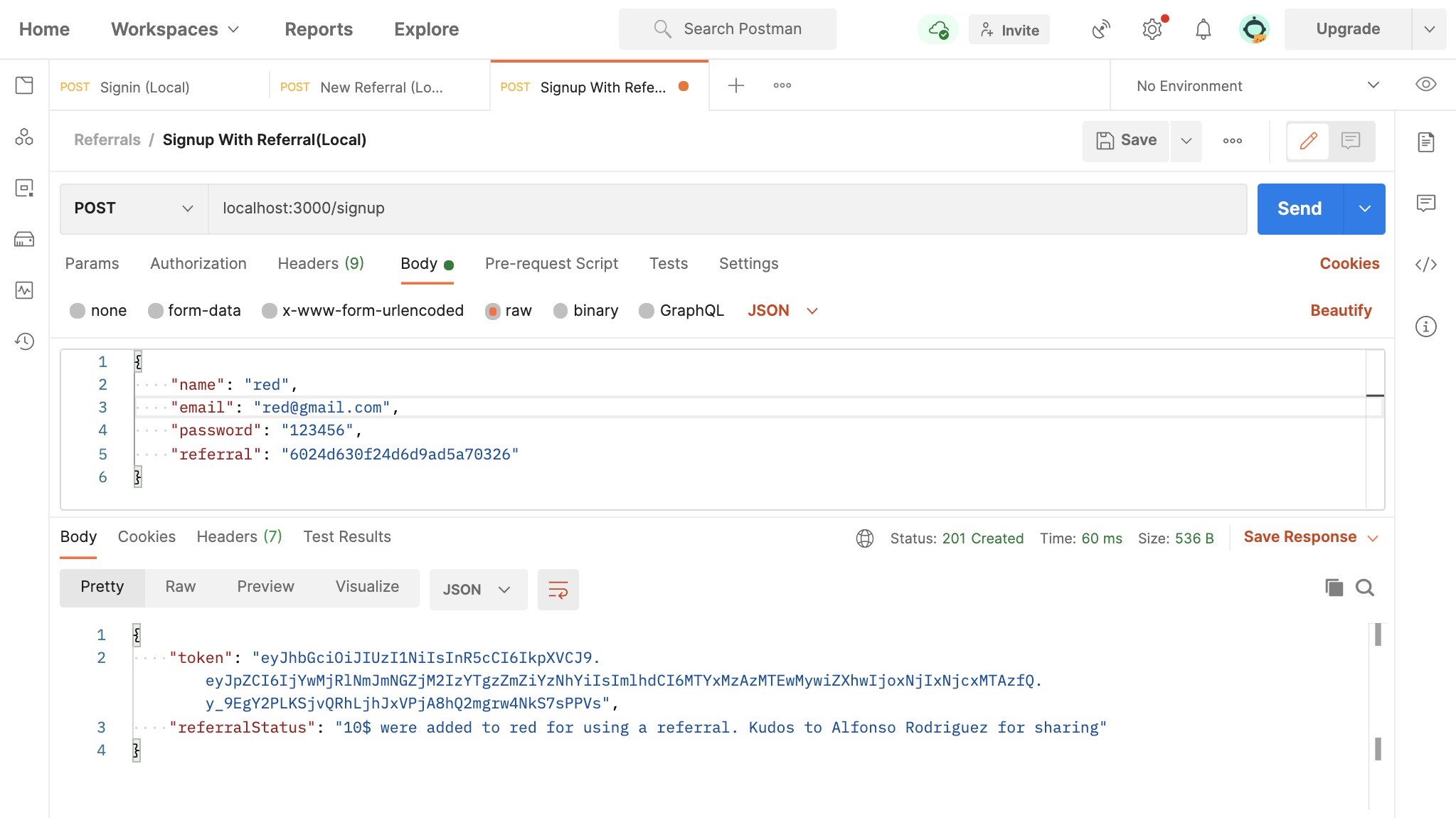A basic referral system build with NodeJS and Mongoose
Part of a cool exercise to create a API that support the creation of a front end tha handles user referral link creations and rewarding.
The project includes a basic crud abstraction, JWT authentication, Basic tests and Schema / Model validations.
After cloning the repo, go to the terminal and run npm install from the project directory.
A local Mongo DB Instance must be installed.
Then use a tool line Postman to test the following endpoints:
Unprotected endpoints
POST http://localhost:3000/sigin { "email": "jon@gmail.com", "password": "123456", }
POST http://localhost:3000/signup { "name": "John", "email": "jon@gmail.com", "password": "123456", }
POST http://localhost:3000/signup { "name": "John", "email": "jon@gmail.com", "password": "123456", "referral": "131312234234" }
The sign up with a referral ID may lead to different results:
- A successful sign up with a valid referral will add a configurable amount of credits to the registering user. If 5 conventions are reached, the creator of the referral will get a reward as well. The response contains a message about the amount added to the new user credit.
- A successful sign up with an invalid referral code
- A successful sign up with a non ative referral link
GET http://localhost:3000/checkReferral?id=60177611cfaa9364ed850ef2
Verify if a referral ID is valid
Protected endpoints
POST http://localhost:3000/api/referrals {}
Creates a new referral with the connected user and returns a referral link.
There are other CRUD endpoints available to interact with the models
An instance of the project has been deployed to Heroku for easy testing. The root URL to the API is :
http://secret-woodland-86502.herokuapp.com
just in case you loose track of the original repository, here is the link to the source code at Github
Keep in mind that for the secure endpoints to work. An instance of MongoDB must be configured and the local database must be set in the dbUrl key of config/dev.js file.
Also, a token must be set up for the secured endpoints and configured in the header of the requests.
Some basic tests has been added for most of the scenarios. The available test commands are:
yarn test / Run all tests
yarn test-routes / Test basic routing tests
yarn test-models / Tests models
yarn test-controllers / tests controller
yarn test-auth / Test unprotected endpoints
